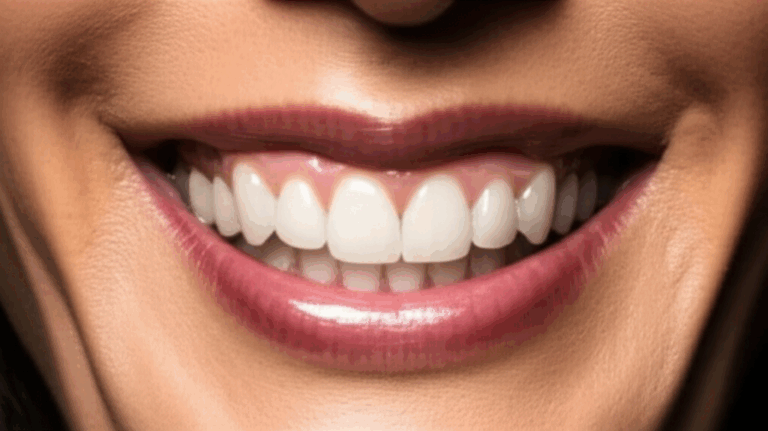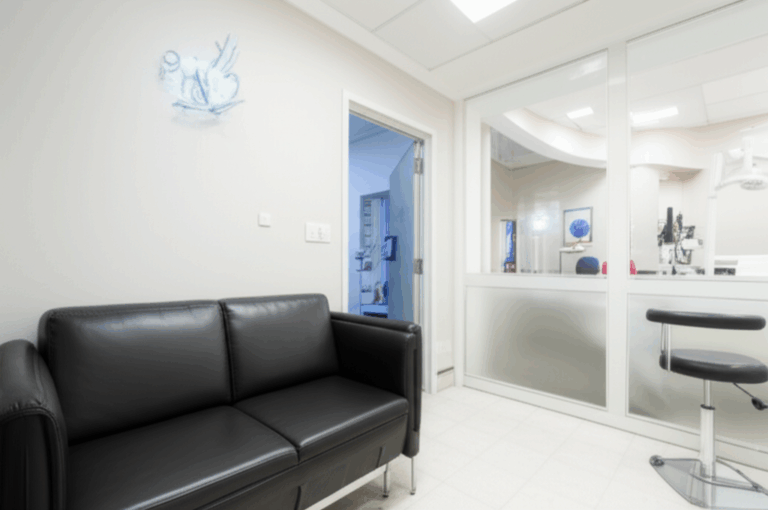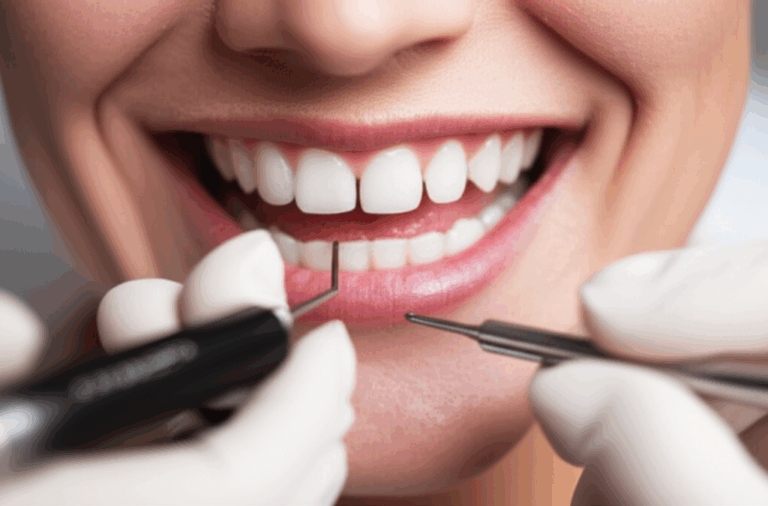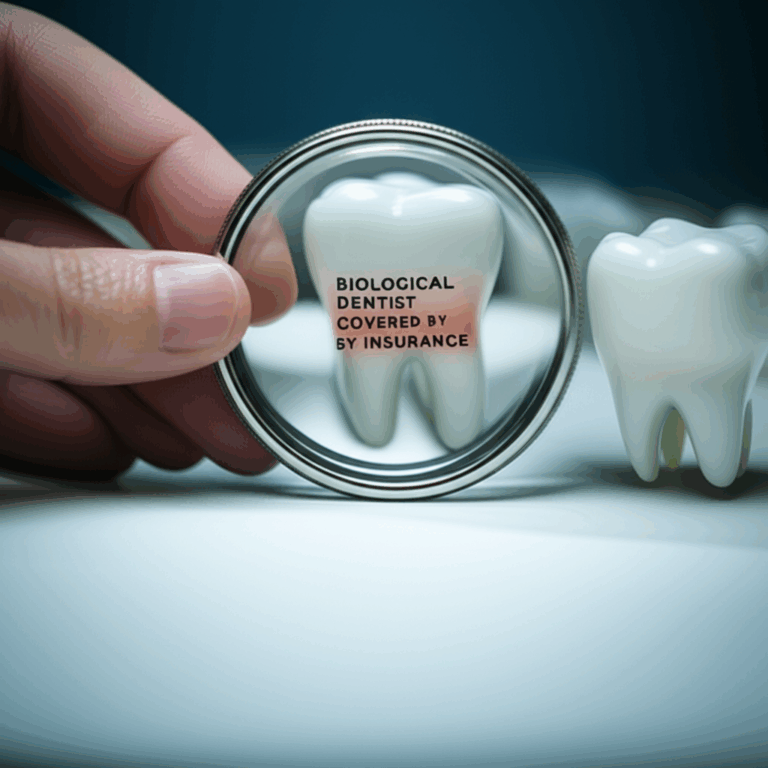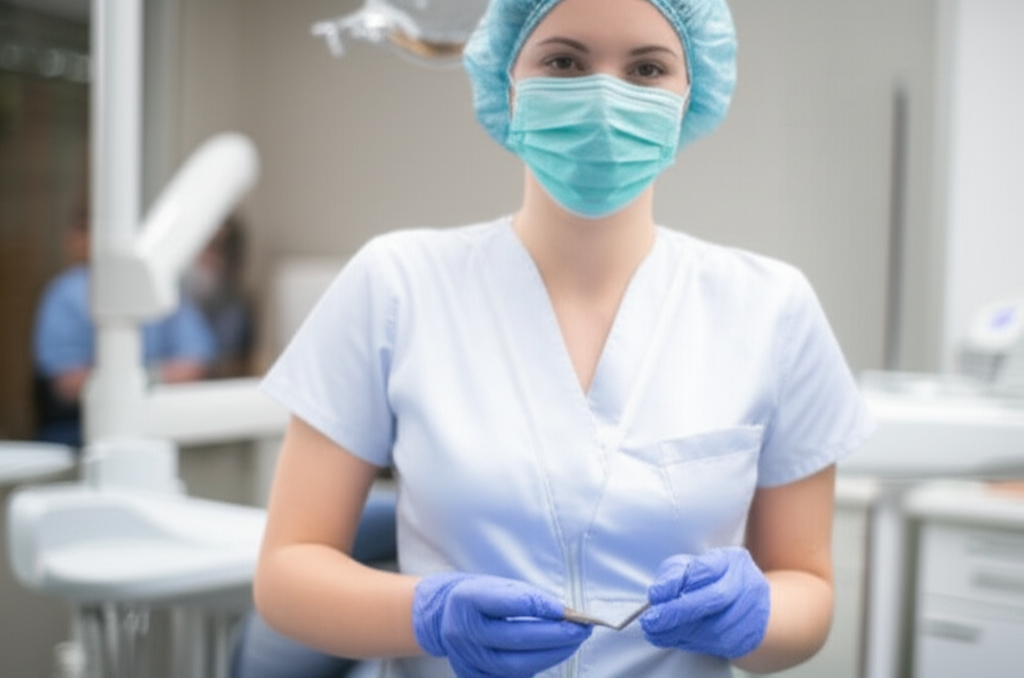
Are Dentists Allied Health Professionals? Demystifying Their Healthcare Classification
You’ve probably seen the term “allied health professional” and wondered where dentists fit. Are they part of allied health, like physical therapists and dietitians, or are they in a category of their own? It’s a fair question. Healthcare names can feel confusing. Let’s clear it up in plain language and give you an easy way to understand who does what for your health.
Short answer: Most official lists do not count dentists as allied health professionals. Dentists work as independent doctors for the mouth, jaws, and parts around them. They often lead their own dental team. Still, dentists work closely with allied health staff and medical doctors because your mouth health connects to the rest of your health.
Table of Contents
- What Defines an Allied Health Professional?
- The Unique Role and Education of a Dentist
- Dentists vs Allied Health: Key Differences and Overlaps
- Official Classifications: What Organizations Say
- The Collaborative Team: Why Working Together Is Important
- Who Should You See and When? Simple Guidance
- For Students: Jobs and Schooling
- Conclusion: A Simple “No, But Closely Connected” Answer
- Your Healthy Takeaway
Part 1: The Simple Hook
You want a straight answer. Are dentists in the same group as physical therapists, occupational therapists, or radiographers? Many people think yes because they all work in health. The truth is a bit different. Dentists train as doctors for the mouth. They check, treat, do surgery, and manage care. That puts them in a special group in most health systems. You still see them work next to allied health staff in offices, hospitals, and public health jobs. Teamwork is key. Labels also matter for things like licenses, payment, and referrals.
Part 2: What’s Really Going On? The Simple Science of Roles in Healthcare
What Defines an Allied Health Professional?
Allied health professionals make up a big, wide part of the healthcare team. Think of them as special helpers who support prevention, checking, and recovery. They don’t include doctors, nurses, or dentists in most cases. They usually have a bachelor’s or master’s degree. Many work with a lot of freedom. Most work with doctors or dentists or in close teamwork.
Common allied health jobs:
- Physical therapists and occupational therapists
- Speech-language pathologists
- Dietitians and nutritionists
- Radiographers and medical techs
- Respiratory therapists and sonographers
- Orthotists and prosthetists
- Dental hygienists, dental assistants, and dental therapists
- Audiologists and lab scientists
Key things:
- Care based on research
- Care that focuses on patient comfort and day-to-day living
- Focus on stopping problems early and helping people get better
- Need licenses and follow rules
- Work together in a health team
Why the mix-up? The term “allied health” can mean different things in different countries. Some places use a big group that includes many non-doctor roles. Others set dentistry as a separate job, not part of allied health and not part of medicine or nursing. The words may change, but the work is still connected.
The Unique Role and Schooling of a Dentist
What is a Dentist?
A dentist is a doctor who finds, stops, and treats problems of the mouth. That means teeth, gums, jaws, and close-by structures. Dentists help stop problems through exams and sealants. They fix teeth with fillings and crowns. They also do surgeries, from easy tooth pulling to big jaw surgery.
You’ll see dentists in:
- Regular practice for all-around mouth care
- Specialty care like braces, gum disease, root canals, baby teeth, oral medicine, jaw pain, dental X-rays, dental anesthesia, and public health
- Hospital dentistry for people with tough medical issues
- Community dental programs and public health
- Teaching and research
Training and Schooling
In the U.S., dentists follow a step-by-step path:
- College with pre-dental classes
- Dental school: Doctor of Dental Surgery (DDS) or Doctor of Dental Medicine (DMD), usually four years after college
- License from national and state or province boards
- Keep learning to keep license and stay up to date with new dental care and safety
Many dentists keep learning to get special training:
- Oral and Maxillofacial Surgery
- Orthodontics (Braces)
- Gum Disease (Periodontics)
- Root Canals (Endodontics)
- False Teeth and Crowns (Prosthodontics)
- Kids’ Dentistry (Pediatric Dentistry)
- Dental Public Health
- Oral Medicine
- Dental X-rays (Radiology)
- Jaw Pain (Orofacial Pain)
- Dental Anesthesia
In the U.S., the American Dental Association (ADA) and American Dental Education Association (ADEA) handle standards. The Commission on Dental Accreditation checks dental programs. In other countries, dental schooling is ruled by national councils and dental boards. In the UK, dentistry is seen as part of “Medical and Dental” staff. In Canada, Health Canada manages broad policy while provinces check dentist training. Australia’s Allied Health Professions Australia (AHPA) lists allied health jobs, usually not counting dentists.
Bottom line: Dentists train as doctors for mouth health. Their schooling is as deep and long as medical training for their area. Their license lets them fully check and treat the mouth.
Dentists vs Allied Health: Key Differences and Where They Meet
How Much Freedom and Main Responsibility
- Dentists are main mouth doctors. They check, plan, do surgery, and prescribe medicine. They lead dental care. Many run their own clinics.
- Allied health pros often work after a doctor or dentist says so. Many work with agreements or rules. They have freedom in their jobs but follow a bigger care plan.
Schooling and What They Do
- Dentists finish a doctor-level program. They can do surgery, manage anesthesia (in some cases), give certain medicines, read X-rays for the mouth, and make full care plans.
- Allied health pros have deep skills in their area. Most have a bachelor’s or master’s. Some have a doctor’s degree (like Doctor of Physical Therapy). Their work can be wide, but their training is different and rules vary.
The “Oral Health Team” vs “Allied Health” Setup
Dentists usually lead a team that includes:
- Dental hygienists (clean teeth, treat gums, teach about brushing)
- Dental assistants (help at appointments, clean tools, take X-rays)
- Dental therapists in some countries (do some fillings and care)
- Dental lab techs (make crowns, bridges, dentures, aligners, implant parts)
Think of this as a special team. Dentists decide the plan. The rest help carry it out. This looks different from most allied health teams in hospitals or rehab centers, but it fits into the larger health world.
Modern offices also work with digital dental labs for designing, 3D printing, and making dental pieces quickly and well. For example, tooth repair with a crown or veneer might mean the dentist works with a dental ceramics lab. Implants need teamwork with an implant dental laboratory for a good fit.
Official Classifications: What Organizations Say
WHO and International Standards
The World Health Organization’s job list (ISCO-08) puts “Dental Practitioners” in code 2261. That puts dentists under “Health Professionals,” next to “Medical Doctors.” “Associate Health Professionals” are in a different group. Many countries use this setup. It shows the split clearly. Dentists are not grouped with allied health jobs. They stand out as their own health pros with main responsibility for their area.
National Health Systems and Rules
- United States: The Bureau of Labor Statistics lists “Dentists” in their own group, not with therapists or allied health roles. States have dental boards for licensing. ADA and ADEA watch learning and rules. The CDC guides infection control and public health for mouth care.
- United Kingdom: The NHS puts dentistry under “Medical and Dental” staff. Allied Health Professionals (AHPs) are their own group. The General Dental Council manages dentists and dental care helpers.
- Canada: Dentists are ruled by provinces as a special job. Health Canada sets broad policy. Dental hygienists and other helpers have their own boards. Dentists are not under allied health councils.
- Australia: Allied Health Professions Australia (AHPA) speaks for allied health jobs but usually does not count dentists. The Dental Board of Australia manages dentists.
These systems all agree. Dentists’ schooling, freedom, and ability to diagnose/provide care put them in a different spot than allied health.
The Collaborative Team: Why Working Together Is Important
No matter the name, good care happens when teams work together. The mouth and the rest of the body are connected.
For example:
- Diabetes and gum disease: Badly managed diabetes can make gum disease worse and vice versa. Dentists, doctors, and dietitians work together to help.
- Heart disease: Bad mouth health is linked to heart risk. Dentists spot gum problems and send patients to doctors if needed.
- Pregnancy: Gum disease may raise the chance of early birth or low baby weight. Dentists and pregnancy care teams join up to help.
- Sleep and breathing: Some dentists help treat sleep apnea with mouth devices, teaming up with sleep doctors and breathing therapists.
- Jaw pain (TMD): Dentists and physical therapists often work together to relieve pain in the jaw and neck.
Infection control, patient safety, and quality are everyone’s job. The CDC makes safety rules for dental care. Public health dentists work with local health offices to prevent tooth decay and run community dental programs.
Teledentistry (using video/phone for dental help) improves care for people living far away. It helps send patients to the right place and supports education. Find out how a digital dental lab helps with scanning, design, and 3D printing for better speed and fit: Digital Dental Lab.
Who Should You See and When? Simple Guidance
Here is a quick guide:
See a dentist if you:
- Have tooth pain, bleeding gums, swelling, broken/loose teeth, sores that won’t heal
- Need a check-up, cleaning, or X-rays
- Want care like sealants, fluoride, or cancer checks for your mouth
- Plan to fix teeth with fillings, crowns, bridges, root canals, or implants
- Want cosmetic work like whitening, bonding, or veneers
- Need gum care or help with jaw pain
- Want advice on mouth health if you have chronic illness
See an allied health pro if you:
- Need help getting better after an injury. Physical therapy for jaw/neck issues. Occupational therapy for help after stroke.
- Have trouble talking or swallowing. Speech therapy after cancer in the mouth or throat.
- Need food advice. Dietitians help with eating if you have trouble chewing or digesting.
- Need special devices, like hearing aids or braces for walking.
Referrals go both ways. Dentists may send you to a nurse or doctor. Your doctor may send you to a dentist for mouth symptoms. Good care involves sharing info.
For Students: Jobs and Schooling
Thinking about a health career? Both dentistry and allied health are good. But the training, job types, and freedom are different.
Dentistry:
- Doctor-level degree (DDS or DMD)
- Surgery, diagnosis, and medicine knowledge for mouth
- Choices in general or specialist care
- Learn how to run an office
- Keep learning always
Allied Health:
- Likely a bachelor’s or master’s
- Specialize in help, checking, or recovery
- Work with some freedom in your own area
- Partner with doctors and dentists
Both jobs need good science, kindness, and teamwork.
How Dental Labs Fit In: The Often-Unseen Team Members
Patients almost never meet dental lab workers, but their work is in almost every crown, bridge, denture, and implant. They use tech, science, and art in your mouth. Their skills help your dentist give you natural and working teeth.
- Crowns and bridges use advanced ceramics and digital design. Many dentists trust a dental ceramics lab for good looks and strong bites. Learn more at Dental Ceramics Lab.
- Dentures need to fit well and look nice. Practitioners work with special denture labs to help you eat and smile well.
- Implants are even trickier. The implant dental laboratory creates custom parts for a solid fit. Learn more at Implant Dental Laboratory.
- Curious about cosmetic options? For veneers and more, read here: What is a veneer
Policy, Payment, and Why This Matters
How health systems label dental work affects pay, rules, and who can get care.
- Dental payments are often not the same as medical payments. Dental and medical insurance can be separate, making things harder for people who need both.
- Public dental programs matter most for people who can’t afford care. Dental teams, allied health workers, nurses, and social workers all add to these services.
- Groups like HHS, NIH, and the CDC fund research and guide best practices. Dentist groups make rules and train dentists.
- The WHO and the FDI World Dental Federation set job rules and policy. They see dentistry as a key health area.
Frequently Asked Questions
- Are dentists “medical doctors”? Dentists are doctors (DDS or DMD). But they are not physicians—they study teeth, not the whole body.
- Are dental hygienists allied health professionals? In many places, yes. They may fall under allied health frameworks.
- What about physician assistants, nurse practitioners, pharmacists, optometrists, podiatrists, or chiropractors? Some places count them as allied health; some treat them as their own group.
- Do dentists work in hospitals? Yes, especially oral surgeons and dentists for special cases.
- Is teledentistry real? Yes. It helps with calls or follow-ups, but cannot replace in-person treatment.
Conclusion: A Simple “No, But Closely Connected” Answer
Are dentists allied health pros? In most cases, no. Dentists are in a group with other health pros who have their own training and full authority for their area. The WHO, NHS, U.S., Canada, and Australia all say dentists are their own profession.
But this does not mean dentists work alone. Your mouth health is part of your general health. Dentists, doctors, and allied health staff all work as a team.
Part 3: Your Options—A Guide
When caring for yourself:
- At home: Brush with fluoride toothpaste twice daily, floss, cut down on sugar, wear guards if needed, keep dental visits.
- At the dentist: Ask for a full mouth check. Share your health background. Talk about chronic illnesses. Your dentist can adjust care and refer as needed.
- In the wider system: For distance or cost concerns, ask about teledentistry. Community health centers often give full services.
Pros and cons:
- Private office: Easy, personal. Payment may be separate.
- Hospital dentistry: Best for health issues, may need longer planning.
- Community clinics: Affordable and joined-up care. May have waiting lists.
Part 4: Who Is This For?
- Patients: For mouth questions, see a dentist first; they will work with the rest of your team as needed.
- Caregivers: For those with special health needs, find dentists with hospital training, and ask about extra care.
- Students/job seekers: If you want to lead in mouth health, go for dentistry. If you like helping in different ways, allied health has many choices.
- Policy/public health workers: Remember, these labels affect care and payment. Support plans that bring medical and dental care together.
Part 5: Your Healthy Takeaway
In short:
- Dentists are usually not called allied health professionals.
- Dentists are the main doctors for teeth and jaws.
- Healthy smiles come from teams working together.
- Classification affects licenses, payment, and access, but teamwork matters most.
- You can do several things right now to keep your mouth—and your body—healthier.
Simple steps for this week:
- Book a dental check if you haven’t in a while.
- Tell your dentist about your whole health and medications.
- Ask about your risk for gum disease, mouth cancer, cavities.
- If you have chronic illness, ask about a plan that links dentist and doctor visits.
- Missing teeth? Get advice on implants, bridges, or dentures.
- Interested in smile fixes? Ask about whitening, bonding, or veneers—your dentist will walk you through options.
Proof to back this up:
- The WHO groups dentists as health professionals, not allied health.
- ADA/ADEA set doctor-level standards for dentistry.
- The CDC shows how mouth health links to body health.
- NHS, Health Canada, and AHPA all keep dentistry its own group.
- Studies prove gum disease affects diabetes and heart health.
Final thought: Don’t get stuck on the names. Think about the whole team. Your dentist takes care of your mouth. Allied health staff and doctors add their skills too. Working together, they protect all of you.
Glossary quick look:
- Allied health: Group of health helpers who are not doctors, nurses, or dentists.
- Dentist: A doctor for teeth and gums.
- Oral-systemic connection: The link between your mouth and your whole body.
- Preventative dental care: Exams, cleanings, sealants, and fluoride to prevent problems.
- Restorative dentistry: Treatments to fix teeth (fillings, crowns, bridges).
- Teledentistry: Dental care over phone or computer.
You’ve got this. Ask questions. Pick a provider who listens. Keep your mouth healthy—your body will thank you.

